Secondary
Secondary - Teaching Methodologies
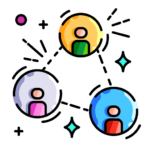
Interactive Lectures
Engaging lectures that encourage student participation, questions, and discussions.
Teachers use multimedia presentations, visuals, and real-life examples to enhance understanding and retention of concepts.
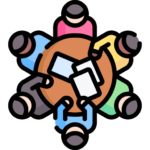
Small Group Discussions
Facilitated discussions in small groups to encourage active participation, collaboration, and peer learning.
Students share ideas, perspectives, and insights, fostering critical thinking and communication skills.
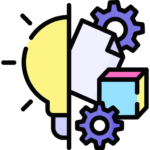
Project-Based Learning (PBL)
Extended, inquiry-based projects that require research, problem-solving, and presentation skills.
Students work collaboratively to investigate complex issues, develop solutions, and present their findings to peers and teachers.
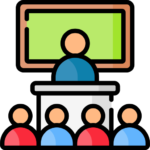
Flipped Classroom
Utilizes technology to deliver content outside of class, allowing students to engage with materials at their own pace.
Classroom time is then used for activities, discussions, and application of knowledge under the guidance of the teacher.

Problem-Based Learning (PBL)
Presents students with authentic, real-world problems to solve, often in interdisciplinary contexts.
Encourages critical thinking, creativity, and collaboration as students work to identify solutions and address challenges.
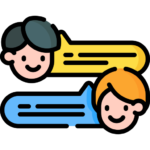
Socratic Method
Encourages open-ended questioning, critical inquiry, and deeper exploration of topics.
Teachers guide students through a series of questions to stimulate critical thinking and provoke thoughtful discussion.

Hands-On Labs and Experiments
Practical, hands-on activities in science, technology, engineering, and mathematics (STEM) subjects.
Students conduct experiments, collect data, and analyze results to develop scientific inquiry and problem-solving skills.
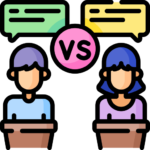
Debates and Role-Playing
Organized debates and role-playing activities to explore different perspectives, develop argumentation skills, and enhance communication abilities.
Encourages students to consider diverse viewpoints and articulate their thoughts effectively.

Literature Circles
Small group discussions centered around a shared piece of literature.
Students take on different roles (such as discussion leader, summarizer, or connector) to engage deeply with texts and develop critical reading skills.

Differentiated Instruction
Tailors instruction to meet the individual needs, interests, and learning styles of students.
Provides opportunities for enrichment, remediation, and personalized learning experiences based on students' abilities and preferences.
Infinity Quest Program Curriculum - Secondary
The secondary school curriculum at IndoScots Global School is designed to provide a comprehensive and well-rounded education that prepares students for success in higher education and the global workforce. Here's an overview of the curriculum:
English language and literature, focusing on reading comprehension, writing skills, grammar, vocabulary, and critical analysis.
Biology, chemistry, physics, and environmental science, covering fundamental concepts, laboratory experiments, and scientific inquiry skills.
History, geography, civics, and economics, exploring historical events, geographic regions, government structures, and economic principles.
- Foreign Languages: Offerings may include Spanish, French, Mandarin, or other world languages to promote global communication and cultural understanding.
- Fine Arts: Visual arts, music, drama, and dance, providing opportunities for creative expression, aesthetic appreciation, and talent development.
- Provides guidance and resources for career exploration, college admissions, standardized testing (SAT, ACT), and post-secondary planning.
- Offers college preparatory courses, workshops, and support services to help students navigate the college application process and make informed decisions about their future.
- Extracurricular clubs, activities, and competitions in areas such as debate, robotics, science Olympiads, Model United Nations (MUN), and community service.
- Enrichment programs to foster leadership skills, creativity, critical thinking, and global citizenship beyond the classroom.
- Integration of social-emotional learning competencies into the curriculum to support students’ well-being, resilience, and interpersonal skills.
- Promotes self-awareness, self-management, social awareness, relationship skills, and responsible decision-making.
- Integration of global perspectives, multiculturalism, and diversity into the curriculum to promote cross-cultural understanding, empathy, and respect for different cultures and perspectives.
- Opportunities for international exchange programs, service learning trips, and cultural immersion experiences to broaden students’ horizons and promote global citizenship.




